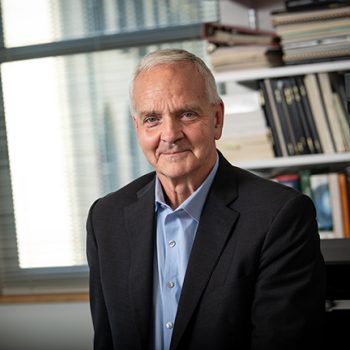From Local Implementations to Global Standards,” organized by the International Expert Consortium on the Regulation, Economics, and Computer Science of AI (RECSAI), delves into the complex interplay between advancing generative AI technologies and the evolving landscape of global and local regulations. It aims to address a range of critical topics, including the ethical implications of AI, the challenges of intellectual property rights in the age of AI-generated content, privacy concerns amidst AI’s growing capabilities, and the potential for establishing unified global standards. This dialogue is crucial for academics, policymakers, and industry leaders who are navigating the regulatory and ethical dimensions of AI to ensure responsible and equitable development and deployment.RECSAI is generously supported by the Dieter Schwarz Foundation.
Date
30 May 2024
Timeframe
10:00 - 18:00 CEST Geneva

EST - New York
CST - Beijing
PST - Los Angeles
AWST - Perth, Australia
Duration
All Day

Professor of Law
, University of Oxford
Jeremias’ research focuses on technology, innovation policy, and the future of work in the European Union and beyond. He is a Fellow of Magdalen College. Jeremias read law at Oxford, Paris, and Harvard Law School, and has held visiting teaching and/or research positions at institutions including Hong Kong University, the Max Planck Institute Hamburg, Renmin Law School Beijing, University College London, the University of Vienna, and Yale Law School.
His book Humans as a Service (OUP 2018, Paperback 2019) explores the promise and perils of work in the gig economy across the world. It was awarded the 2019 St Petersburg Private Law Prize, and has been translated into multiple languages. Jeremias’ research on innovation policy and labour market regulation is frequently drawn on by governments and international organisations, including the European Commission, the International Labour Organisation, and the OECD, and has been cited by courts, policy documents, and news organisations in multiple jurisdictions. He has served on the World Economic Forum’s Global Future Council on the New Agenda for Work, Wages, and Job Creation.
Jeremias is the author of Great Debates in EU Law (with Prof Sanja Bogojević, 2021), and the founding editor of the EU Law in the Member States Series (Hart), exploring the impact of Union law across the Member States. His contributions to that series include The EU Charter of Fundamental Rights in the Member States (2020, with M Bobek), Air Passenger Rights, Ten Years On (2016, with M Bobek), and Viking, Laval and Beyond (2015, with M Freedland). He is currently writing an introduction to EU Labour and Internal Market Law for OUP’s Clarendon Law Series.
Together with Professor Abi Adams-Prassl of the Oxford Department of Economics, Jeremias also writes on the law and economics of fragmenting labour markets and access to justice. His work has been recognised by a number of prizes for teaching, research, and public impact, including the Wedderburn Prize and the Apgar Prize, an Oxford University Teaching Award, a British Academy Rising Star Engagement Award (for work on EU labour law), an O2RB Excellence in Impact Award, and an ESRC Outstanding Impact in Public Policy Prize.

Chair for Law and Ethics of the Digital Society, European New School of Digital Studies
, European University Viadrina
Prof. Dr. Philipp Hacker, LL.M. (Yale), holds the Chair for Law and Ethics of the Digital Society at the European New School of Digital Studies (ENS) at European University Viadrina Frankfurt (Oder). Prior to joining ENS, he served as an AXA Postdoctoral Fellow at the Faculty of Law of Humboldt University of Berlin; a Max Weber Fellow at the European University Institute, and an A.SK Fellow at WZB Berlin Social Science Center. His research focuses on the intersection of law and technology. In particular, he analyzes the impact of tracking technologies, AI, and the IoT on consumer, privacy, and anti-discrimination law. He often cooperates with computer scientists and mathematicians, especially on questions of explainable AI and algorithmic fairness.

Executive Director, The Wharton School
, The University of Pennsylvania Law School
Professor Sarah Hammer is Executive Director at the Wharton School of the University of Pennsylvania, leading financial technology initiatives as well as Wharton Cypher Accelerator, which supports leading global businesses that are leveraging financial technology. Hammer is also Adjunct Professor at the University of Pennsylvania Law School. Hammer is also Affiliated Scholar at the Penn Program on Regulation.
Previously, Hammer was Managing Director of the Center for Innovation in Finance and Senior Director of the Alternative Investments Program at Wharton. Hammer also led the launch of the University of Pennsylvania’s first digital asset, unique 3D intellectual property that memorializes the invention of the mRNA technology which enabled the COVID-19 vaccines.
Hammer is also a board member of the International Telecommunications Union (ITU) at the United Nations. The ITU is the UN specialized agency responsible for information and communication technology. She is also an advisor at the World Economic Forum, the Dubai International Finance Centre, and the Digital Dollar Project for Central Bank Digital Currency.
Previously, Hammer was Acting Secretary of the Department of Banking and Securities for Pennsylvania, having led the Department through the banking crisis of March 2023. The Department regulates and supervises ~290,000 bank and non-bank financial entities, totaling $3.5 trillion in AUM.
Hammer was also previously Acting Deputy Assistant Secretary for Financial Institutions and Director of the Office of Financial Institutions Policy at the US Department of the Treasury. In this role, she led the Department’s policy responsibilities involving financial institutions, as well as oversaw the Federal Insurance Office and the Office of Critical Infrastructure Protection and Compliance Policy (cybersecurity).
While at U.S. Treasury, Hammer also led the cross-functional team conducting a full review and report on the financial regulatory framework. Hammer also served on the board of the Securities Investor Protection Corporation (SIPC) and assisted the U.S. Treasury Secretary in fulfilling responsibilities on the board of the Pension Benefit Guaranty Corporation (PBGC).
Hammer has held various leadership positions throughout financial services in general management, portfolio management, trading, marketing, research, and analytics at the Vanguard Group, PIMCO, JP Morgan Chase, BlackRock, and Tudor Investments.
Hammer earned a J.D. from the University of Pennsylvania Law School, an M.B.A. from the Wharton School, and a Master of Studies from Oxford University.

Edward B. Shils Professor of Law and Professor of Political Science; Director, Penn Program on Regulation
, University of Pennsylvania
Cary Coglianese specializes in the study of administrative law and regulatory processes, with an emphasis on the empirical evaluation of alternative processes and strategies and the role of public participation, technology, and business-government relations in policymaking.
The author of more than 300 articles, book chapters, reports, and essays, Coglianese’s most recent book projects have included: Achieving Regulatory Excellence; Does Regulation Kill Jobs?; Regulatory Breakdown: The Crisis of Confidence in U.S. Regulation; Import Safety: Regulatory Governance in the Global Economy; and Regulation and Regulatory Processes. He has also recently written on climate change policy, public participation and transparency in federal rulemaking, the use of artificial intelligence by government agencies, voluntary environmental programs, and role of waivers and exemptions in regulatory law.
The founding director of the Penn Program on Regulation, he previously served as Penn Carey Law’s Deputy Dean for Academic Affairs. Prior to joining the Penn faculty, Coglianese spent a dozen years on the faculty at Harvard University’s John F. Kennedy School of Government where he taught courses in environmental policy, policy analysis, and research methods, founded and chaired the school’s Regulatory Policy Program, and was an affiliated scholar at the Harvard Law School. He has served as a visiting law professor at Stanford University and Vanderbilt University.
A Senior Fellow of the Administrative Conference of the United States (ACUS), a federal agency that develops recommendations for improving the administrative aspects of government, Coglianese has also served as a Public Member and the Chair of ACUS’s Rulemaking Committee. He has served as the chair and co-chair of several committees of the American Bar Association’s Section on Administrative Law and Regulatory Policy as well as a member of the Section’s governing Council.
At Penn, he teaches courses in administrative law, environmental law, regulatory law and policy, and policy analysis. The chair of Penn Carey Law’s Government Service and Public Affairs Initiative, he is a faculty affiliate of Penn’s Kleinman Center for Energy Policy and the Quattrone Center for the Fair Administration of Justice. In addition, he serves as the faculty director for Penn Carey Law’s executive education program on regulatory analysis and decision-making and teaches periodically in the Wharton School’s executive education program.
He is an elected member of the American Law Institute and the National Academy of Public Administration. He also founded the Law & Society Association’s international collaborative research network on regulatory governance, served as a founding editor of the international peer-reviewed journal Regulation & Governance, and created and now advises the daily production of The Regulatory Review, a global online publication covering issues of administrative and regulatory law and policy. He was also the creator and host of the podcast series, Race and Regulation, which focused on ways that regulation contributes to racial injustice as well as on how just regulatory policies can serve to combat inequalities in society.
In 2023, he was selected to serve as a member of an independent peer review panel providing feedback to the Office of Management and Budget on proposed revisions to its Circular A-4 on regulatory analysis. He has also served as the chair of a National Academy of Sciences committee that spent 17 months studying the implications for law and regulation of emerging trends in the maritime sector. He has previously served as a member of other Academy committees on performance-based regulation and on ways to improve federal inspections of offshore oil and gas development. He has also served on an Aspen Institute panel on energy governance, co-chaired an expert task force on water affordability issues for the American Water Works Association, and chaired a task force on transparency and public participation in rulemaking for the nonprofit organization OMB Watch. He has provided research and advice on various regulatory issues to the Alberta Energy Regulator (Canada), Environment Canada, the U.S. Department of Transportation, the U.S. Environmental Protection Agency, and the Organization of Economic Cooperation and Development (OECD).

Dean and University Professor of Robotics
, Carnegie Mellon University
Martial Hebert became dean of Carnegie Mellon University’s world-renowned School of Computer Science in August 2019. A leading researcher in computer vision and robotics, he’s the sixth dean to lead the school since its inception in 1988.

Professor of Law and Artificial Intelligence
, University of Tübingen
Director of the CZS Institute for Artificial Intelligence and Law
I am Professor of Law and Artificial Intelligence at the University of Tübingen and Director of the CZS Institute for Artificial Intelligence and Law. Previously, I worked at the the University of Oxford, the London School of Economics and the Max Planck Institute for Innovation and Competition. I have also been a Visiting Professor at LUISS University as well as an Affiliated Fellow at University College London.
My research focuses on law and artificial intelligence as well as on EU data law.
Previous projects have focused on the use of AI by public administrations, the explainability of AI, on access to data for environmental purposes, on the regulation of data intermediaries under the Data Governance Act and on the notions of the data controller and personal data under the GDPR. I am moreover author of Subnational Authorities in EU Law (Oxford University Press 2017) and Blockchain Regulation and Governance in Europe (Cambridge University Press 2018), an editor of the Cambridge Handbook on the Law of the Sharing Economy (which has also been translated into Korean) and Smart Urban Mobility.
I am a member of a number of expert committees on digitalization, including the Council of Europe’s ad hoc Committee on Artificial Intelligence and the European Commission’s Blockchain Observatory and Forum. I have moreover advised national institutions as well as the European Commission and the European Parliament on different occasions.

Vice President, Data Ethics
, SAS
As Vice President of the Data Ethics Practice at SAS, I lead a global effort to build a better, more equitable future through fair, sustainable applications of data, artificial intelligence, and associated technologies. I believe that when organizations prioritize ethical data practices, we help mitigate harm to vulnerable populations and drive important human-centered innovations that improve our world.
Over the years, I’ve had the privilege to lead multiple teams that deliver proven, data-driven results across sectors. Whether advising marketing and sales alignment strategies or leading customer success through machine learning and artificial intelligence solutions in the health and life sciences industries, I help organizations make smarter decisions to achieve better business outcomes – and even save lives.

Director
, African Observatory on Responsible AI
Dr Rachel Adams is the Principal Researcher at Research ICT Africa, where she Directs the AI4D Africa Just AI Centre, is the Director of the African Observatory on Responsible AI and is the Principal Investigator of the Global Index on Responsible AI.
Rachel is a member of the UNESCO Expert Committee for the implementation of the UNESCO Recommendation on the Ethics of Artificial Intelligence, an Associate Fellow at the Leverhulme Centre for the Future of Intelligence at the University of Cambridge, a Research Associate with the Information Law and Policy Centre at the University of London, and a Research Associate of the Tayarisha: African Centre of Excellence on Digital Governance at the University of Witwatersrand, Johannesburg. Rachel was previously a Chief Research Specialist at the Human Sciences Research Council, South Africa.
Rachel has published widely in areas such as AI and society, gender and AI, transparency, open data, and data protection.

Director, Information Law & Policy Centre, Institute of Advanced Legal Studies
, University of London
Dr Nora Ni Loideain is Director of the Information Law & Policy Centre, and Senior Lecturer in Law, at the University of London’s Institute of Advanced Legal Studies. Her research focuses on EU law, European human rights law, and technology regulation, particularly within the contexts of privacy and data protection. She has published on topics including AI, police use of facial recognition, health data and research in the Global South, the gendering of AI Digital Assistants, and cross border data transfers.
Nora holds BA, LLB, and LLM (Public Law) degrees from the National University of Ireland, Galway, and was awarded a PhD in law from the University of Cambridge. Previously, Nora held the posts of Visiting Lecturer in Law at King’s College London and Research Fellow and Affiliated Lecturer in Law at the University of Cambridge. In 2024, she will be a Visiting Research Fellow at the Australian National University undertaking work on the regulation of health data and AI digital assistants.
In 2019, Nora was appointed to the UK Home Office Biometrics and Forensics Ethics Group (BFEG) which provides independent expert advice ensuring the robustness of evidence underpinning biometrics and forensics policy development for public security within the Home Office. She is a member of the Board of Trustees for the British and Irish Legal Information Institute (BAILII) and an editor of leading law journal International Data Privacy Law (Oxford University Press). She is a Senior Fellow at the University of Johannesburg and an Associate Fellow at the University of Cambridge Leverhulme Centre for the Future of Intelligence (LCFI).
Prior to her academic career, Nora was a Legal and Policy Officer for the Office of the Director of Public Prosecutions of Ireland and clerked for the Irish Supreme Court. Her work on AI, human rights law, and data protection law, has been published by various leading institutions, including the BBC, The Guardian, Science, the House of Lords, and the United Nations. She has also been an expert advisor on legal matters, including AI and biometric systems, Brexit, surveillance, and cross-border data sharing, to the Alan Turing Institute, the House of Lords, Chatham House, and the European Union.

Partner
, EY-Parthenon
Member of Task Force on Generative A
Dietrich leads large global and complex transactions that are transformative for organizations and sectors. His work is highly customer-centric and he has a track record of delivery transformations programs at scale and at pace. In addition, he leads and drives the development and implementation of GenAI-powered disruptive client solutions for the Americas EY-Parthenon Commercial Strategy and Consumer practices.
Prior to joining EY-Parthenon, Dietrich held various senior positions at strategy firms, in industry and with startups. Born and raised in Germany, his career escapades span the typical global and the peculiar destinations, including Turkmenistan.
Dietrich holds several advanced degrees in Mathematics and Operations Research.

Principal Social Innovation Manager
, SAS
I-Sah Hsieh helps organizations innovate responsibly as a member of SAS’ Data Ethics Practice. For the past 15 years, I-Sah has been an analytics advisor to the United Nations and the international development community and has implemented numerous award-winning projects. I-Sah holds an engineering degree from Cornell University and has also implemented transformational technologies across highly regulated industries like healthcare, defense, and telecommunications.

Policy Officer at the European AI Office
, European Commission
Sabrina Küspert is a Policy Officer at the newly established European AI Office of the European Commission. In her role, she focuses on setting up the governance system for general-purpose AI. This is part of implementing the EU AI Act as the world’s first-ever comprehensive legal framework on AI, working towards a global approach to trustworthy AI. During her time as Seconded Policy Expert, she was part of the team negotiating the AI Act on the side of the European Commission. Previously, she was Fellow and Expert on AI at the European Tech Think Tank Stiftung Neue Verantwortung in parallel to her stay at the University of Oxford. Her research focused on exploring the role of Germany and Europe for trustworthy AI worldwide, including through regulation, international cooperation and innovation policy. This included publications on the AI value chain and on unreliability, misuse and systemic risks of general-purpose AI. When she was a strategy consultant with the Boston Consulting Group (BCG), she helped establish their global Responsible AI practice.

Corporate Vice President & Chief Data Scientist, AI for Good Lab
, Microsoft
Juan M, Lavista Ferres is currently the Chief Scientist and Lab Director of the Microsoft AI For Good Research Lab, where he works with a team of data scientists and researchers in AI, Machine Learning and statistical modeling, working across Microsoft AI For Good efforts. These efforts includes projects in AI For Earth, AI for Humanitarian Action, AI For Accessibility and AI For Health.
Juan joined Microsoft in 2009 to work for the Microsoft Experimentation Platform (EXP) where he designed and ran randomized control experiments across different Microsoft groups. Juan also worked as part of the Bing Data Mining team, where he led a group applying data mining, machine learning, statistical modeling and online experimentation at a large scale as well as providing data services for Bing.
Juan started the Microsoft efforts related to SIDS (sudden infant death syndrome), and his work has been published in top academic Journals including Pediatrics. His work has been covered in New York Times, CNN, Chicago Tribune, USNews, USAToday , and over 100 news outlets around the world.
Juan is involved in working to define the data science discipline within Microsoft, and is currently the editor of the Microsoft Journal of Applied Research (MSJAR).
Before joining Microsoft, Juan was the CTO and co-founder of alerts.com. Previously, he spent 6 years in Washington working at the InterAmerican Development Bank applying data science to understand the impact of programs for reducing poverty and inequality in Latin-America and the Caribbean. Juan has two computer science degrees from the Catholic University in Uruguay, and a graduate degree in Data Mining and Machine Learning from Johns Hopkins University. He lives in Kirkland, WA, with his wife and three children. He has been a speaker in the US at Strata, IEEE, Berkeley, Cornell, and in many countries including Canada, Switzerland, Argentina, Colombia , Costa Rica, and Uruguay, and he also was a TedX Speaker.
 Location
Location
Discover more from programme stream
Trustable and Interoperable Digital Identities for Human and Agentic AI,...
30 March 2026 - 09:00 to 17:00
Related stories


 Register here
Register here














